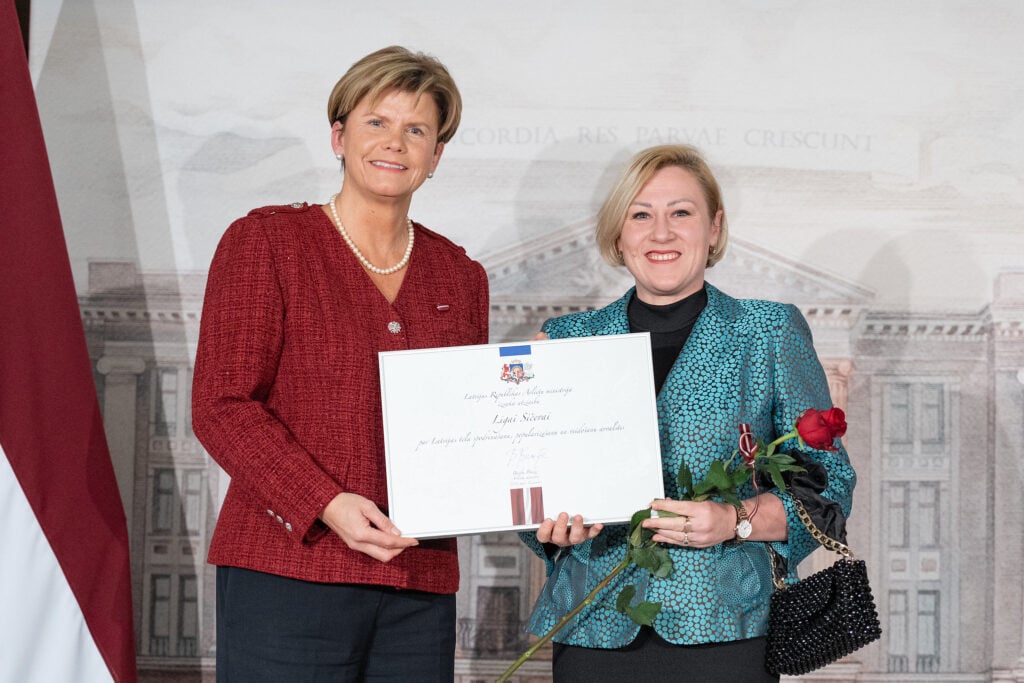The ability to adapt existing resources to strengthen resilience: Strengthening the EU's Eastern border regions
06.05.2025

The war in Ukraine profoundly impacts the geopolitical landscape, particularly affecting the Eastern EU border regions (Estonia, Latvia, Lithuania, Poland, and Finland). These regions face complex challenges, demanding a shift towards exaptive resilience—repurposing existing assets to meet evolving threats and foster sustainable development. Eastern border countries adopt a two-pronged approach: responding to current and potential threats by increasing control and monitoring, and simultaneously mobilising resources to enhance preparedness and invest in economic, territorial, and societal resilience. Finland and Sweden’s 2024 NATO accession exemplifies proactive threat response, integrating into collective deterrence and defence structures.
Defence spending in these nations, already high (projected 2.5%-4.7% of GDP in 2025), is being expanded. Initial national security investments now bolster EU external border protection against hybrid warfare, cyberattacks, and sanctions circumvention attempts targeting Russia. The Latvian Customs Board is vital to the EU’s efforts to counter sanctions evasion. Facing significant challenges in preventing the circumvention of sanctions imposed on Russia and Belarus, the Board has implemented enhanced control measures and actively collaborates with other EU member states and recipient countries in Central Asia and beyond. This collaborative approach is crucial in tracking the movement of sanctioned goods, identifying potential evasion routes, and sharing intelligence to disrupt smuggling networks. The Board’s efforts include advanced risk analysis, utilising scanned images of vehicles and cargo to identify suspicious shipments, and implementing targeted inspections at border checkpoints. Their work has prevented numerous shipments of sanctioned goods from Russia and Belarus from entering or exiting the EU, demonstrating the effectiveness of their proactive and collaborative approach to sanctions enforcement. Continued investment in technology, training, and international cooperation will be essential to maintain the Customs Board’s effectiveness in combating sanctions evasion.
The Baltic states and Eastern EU border countries face a significantly heightened risk of cyberattacks, with a dramatic increase in incidents observed in recent years. This escalation is linked to geopolitical tensions, particularly Russia’s war in Ukraine and its associated influence operations. Latvia, for example, has seen a substantial rise in cyberattacks, reaching a two-year high, with some directly linked to the country’s support for Ukraine. These attacks target government institutions, critical infrastructure, and businesses to access sensitive information or disrupt essential services. Sophisticated campaigns, including disinformation and denial-of-service attacks, aim to undermine public trust, sow discord, and weaken societal resilience. The scale and sophistication of these threats necessitate a comprehensive and proactive cybersecurity strategy across the public and private sectors, emphasising international cooperation, advanced threat detection, and rapid response capabilities to safeguard critical infrastructure and maintain essential services for citizens.
While crucial for national security, increased defence spending necessitates reducing public investment across other sectors. This trade-off demands careful consideration of priorities, balancing enhanced security with the potential negative impacts on essential services like healthcare, education, and infrastructure. Optimising resource allocation requires strategic planning and innovative funding mechanisms to mitigate the adverse effects of shifting budgetary priorities. Transparent communication regarding these trade-offs is vital to maintain public trust and support for necessary defence investments.
Economic diversification is crucial for resilience. Existing infrastructure (transportation networks, digital connectivity) is leveraged to attract investment and foster growth in less geopolitically vulnerable sectors. Improved mobility is key, and technological innovation tailored to the region’s challenges is paramount. The economic challenges are significant, with a worsening climate impacting business activity, especially SMES. The Latvian government has adopted a specific development plan for the eastern border region, focusing on support programs for SMES, minimising social tension and outflow of human capital, and increasing reemigration to minimise depopulation and integration of refugees from Ukraine.
Rail Baltica, a major rail infrastructure project, showcases exaptive resilience. Connecting the Baltic states with Western allies via a standard 1435 mm gauge significantly improves military mobility, which is crucial for transporting heavy equipment (as noted by the Centre for European Policy Analysis). Its dual-use design supports civilian and military needs, improving crisis response times by removing infrastructure bottlenecks. A cost-benefit analysis shows it could replace a 7km road convoy with a single 40-wagon train. This enhances regional defence readiness and the military-industrial ecosystem. Its integration into the Trans-European Transport Network strengthens Europe-wide resilience.
Demographic challenges, including depopulation in border regions, increase economic resilience and security risks. Strengthening societal resilience, supporting mental health, fostering cohesion, and improving information sharing during crises are necessary. Environmental challenges, exacerbated by conflict, also require adaptation of existing monitoring and protection programs.
A comprehensive, multifaceted approach is essential to addressing the complex ramifications of the conflict on these regions. It is crucial to adapt the EU’s Cohesion Policy to prioritise resilience-building initiatives (energy security, addressing depopulation, enhancing cross-border cooperation). Proactive adaptation, leveraging existing assets, and fostering collaboration will strengthen the Eastern border regions, contributing to the overall stability and prosperity of the European Union.
Economic strength is paramount for national resilience during crises. While Eastern border countries have demonstrated a capacity to mobilise resources effectively in response to current challenges, continued support is crucial to fortify their long-term resilience and preparedness for future crises. This support should focus on strengthening economic diversification, fostering innovation, and ensuring access to necessary funding for both immediate needs and long-term development projects. Without sustained investment and collaboration, these countries risk being disproportionately vulnerable to future shocks, undermining their ability to maintain stability and contribute fully to the European Union.
Delivered by Katrina Zarina, Member of European Economic and Social Committee, EESC Employers’ Group, Head of Foreign Affairs at the Latvian Chamber of Commerce and Industry
Jaunākās ziņas

10.02.2026
The cost of non-competitive Europe
EU heads of state and government will gather at the picturesque Alden Biesen castle in the east of Belgium on ...

30.01.2026
LCCI EU Project Director Līga Sičeva receives recognition from the Ministry of Foreign Affairs
As part of the events marking the 105th anniversary of Latvia’s international recognition (de jure), Foreign Minister Baiba Braže presented ...

26.01.2026
Interview with Katrīna Zariņa, Chairwoman of the Board of the Latvian Chamber of Commerce and Industry
What could be the biggest challenges for Latvian entrepreneurs this year? The parliamentary elections. Previous experience shows that election years ...